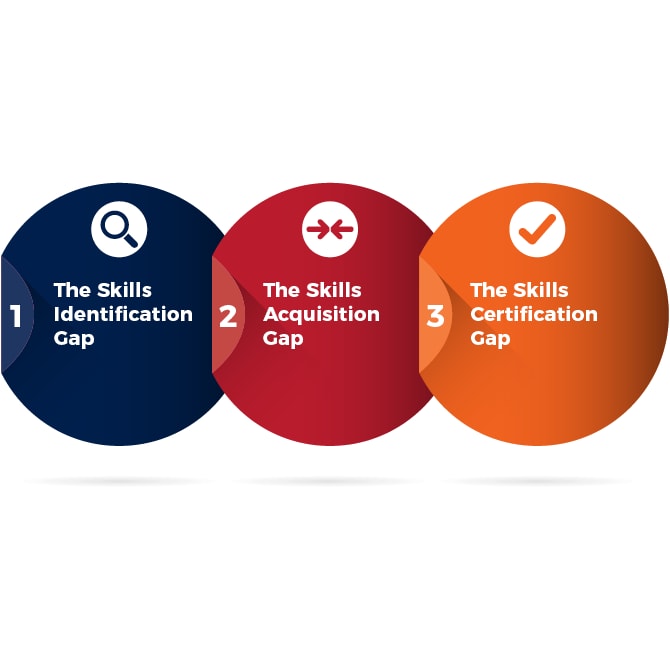
Empower youth with the skills needed to thrive today and tomorrow
Youth are being left behind at an alarming rate. While the number of youth ages 15-24 has grown 30% over the last 20 years, their participation in the labour force has decreased by approximately 12% (ILO, 2020). Of those that are employed, many are in the informal economy holding jobs that are commonly characterised by low pay, hazardous working conditions, and little job security. Of the youth with formal employment, many are underemployed, or their skills do not align with employers’ needs. In addition to losing youth from our labour force, youth unemployment and underemployment may also have broader societal implications, including helping to deepen polarization, erode institutional trust, and generate social unrest. Society has a rare chance now to reset and re-connect youth with high-quality skilling opportunities for the good jobs that businesses will have in five, ten, and 20 years in the future.


Bridging the gaps
This report identifies three global youth skilling “gaps” which impede youth from gaining the skills they need.
- Skills identification gap: Skills mapping and identification is critical in building a pipeline of workers suitably trained for an increasingly digital workplace. Current taxonomies and differing approaches in nations, industries, and companies are largely uncoordinated, rendering transferability difficult. To realign what educators teach with market demands, governments and the private sector can standardise skills definitions and methods of measurement.
- Skills acquisition gap: Youth skills often do not align with the qualifications employers require due to a lack of the necessary awareness, tools, information, and training. To bridge this gap, youth need access to the internet and devices, cultural acceptance and family support, and education and training.
- Skills certification gap: Employers have no verifiable, trusted means by which to assess a young prospect’s skills, talents, and certifications.
Moving forward together
Though the youth upskilling challenge is a global issue, it must be addressed at the national and local levels, because each country, industry, and locality is unique. This report provides government and corporate leaders with four actionable steps to address the skilling gaps:
- Create a national skills mapping system. Main components of a national skills mapping system include a skills taxonomy to define skills, categories, and ways to measure competence; a skills map to outline categories of jobs in industries and their requisite skills; and a skilling tracker to identify educational and training requirements and how they can be acquired.
- Utilise corporate training to support a national skills building engine. By pairing elements from best-in-class corporate programs with government-led policy frameworks, stakeholders can help establish national skills development programmes that utilise existing high-quality resources, are germane to national and local populations, achieve scale more efficiently and are available at a lower cost.
- Build a national digital skills verification trust. National governments, with support from multilateral institutions and technology companies, can lead the development of a central repository for tracking credentials. This platform could align with national skills mapping frameworks and allow youth to make optimal use of national skills development programs.
- Develop skills forums to improve information sharing among key stakeholders. To cohesively adapt goals and expectations, countries should create and utilise an information sharing forum to foster open dialogue among employers, professional associations, youth, educators, and those agencies developing national skills mapping frameworks.

In March 2020, PwC launched a three-year strategic, global collaboration with UNICEF in support of Generation Unlimited (GenU), which aims to help upskill millions of young people around the world. The collaboration focuses on convening public, private and civil society stakeholders to develop programmes and innovations that support young people in their path to productive futures and engaged citizenship, and to conduct research on the global skills challenge. In addition, PwC and UNICEF, in support of GenU, are collaborating in India and South Africa to develop, expand and fund education and skills programmes for young people.




















